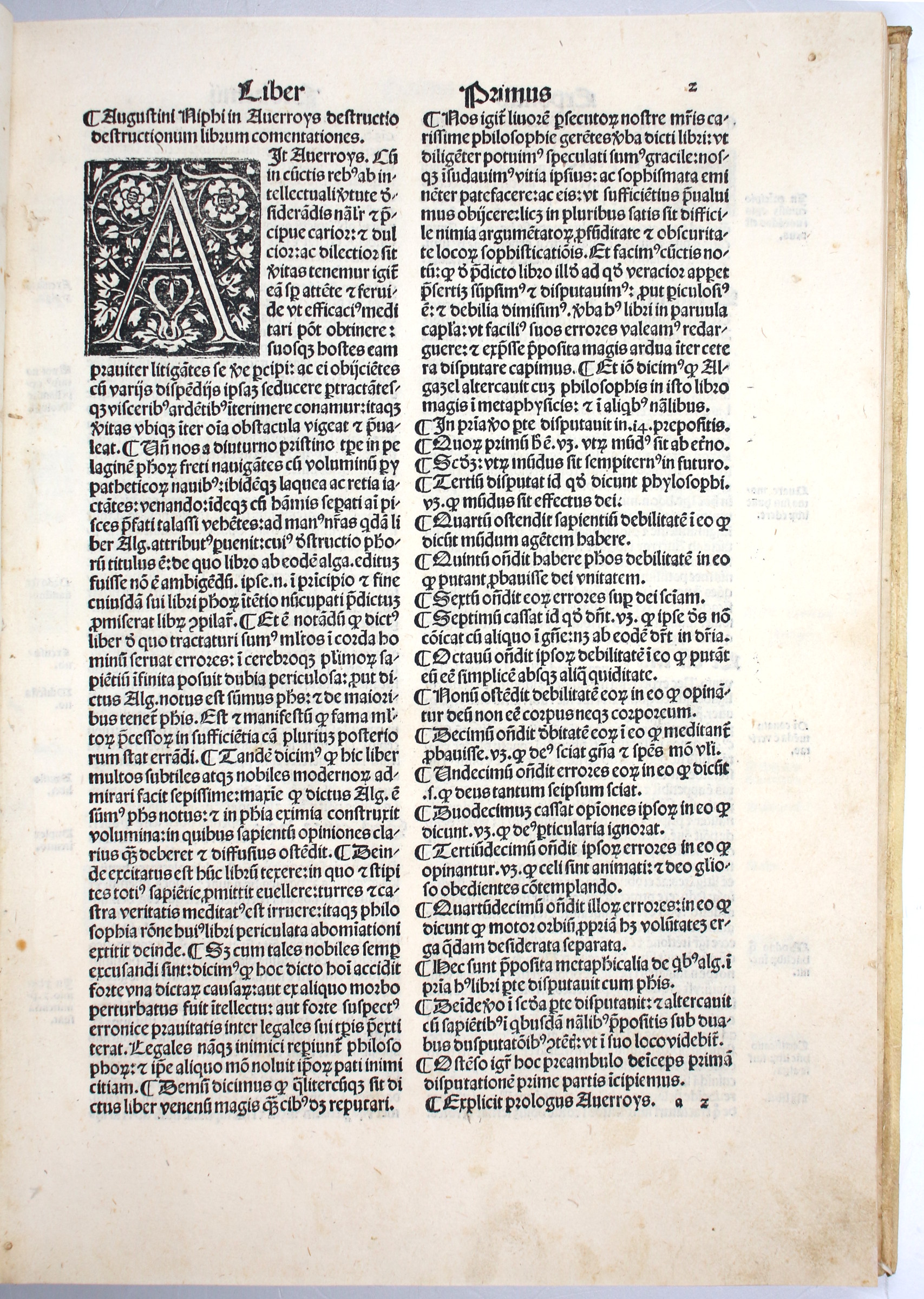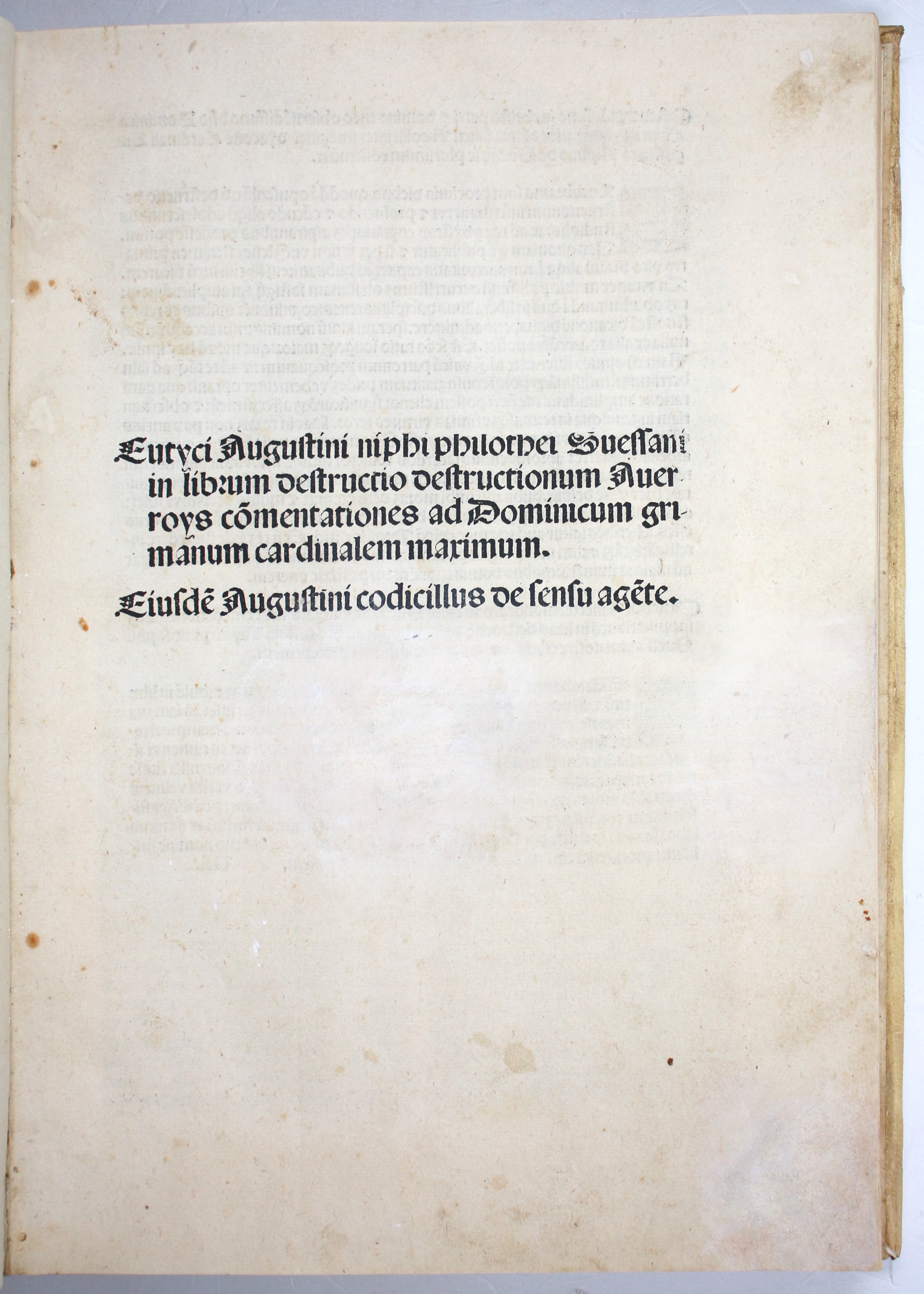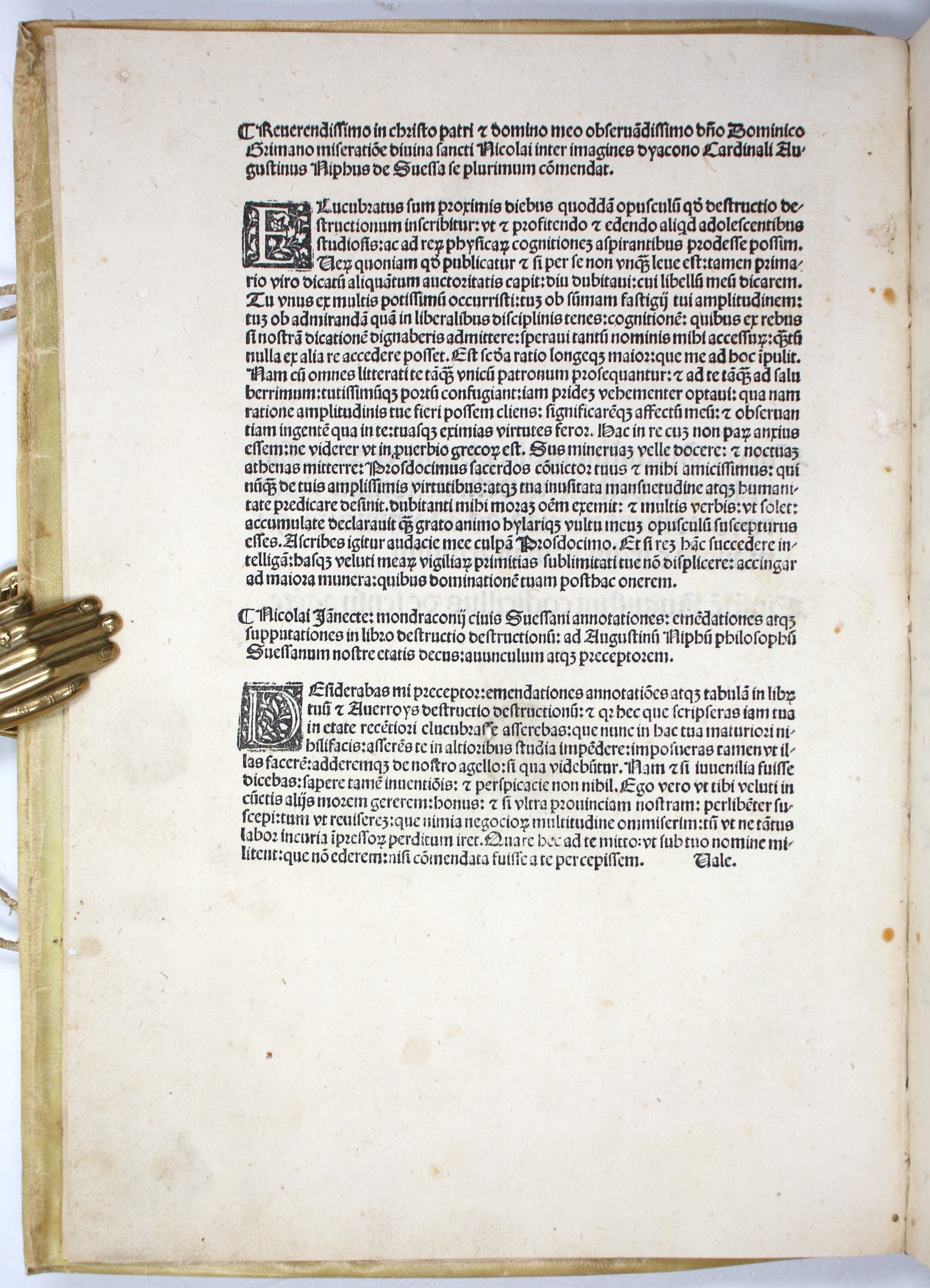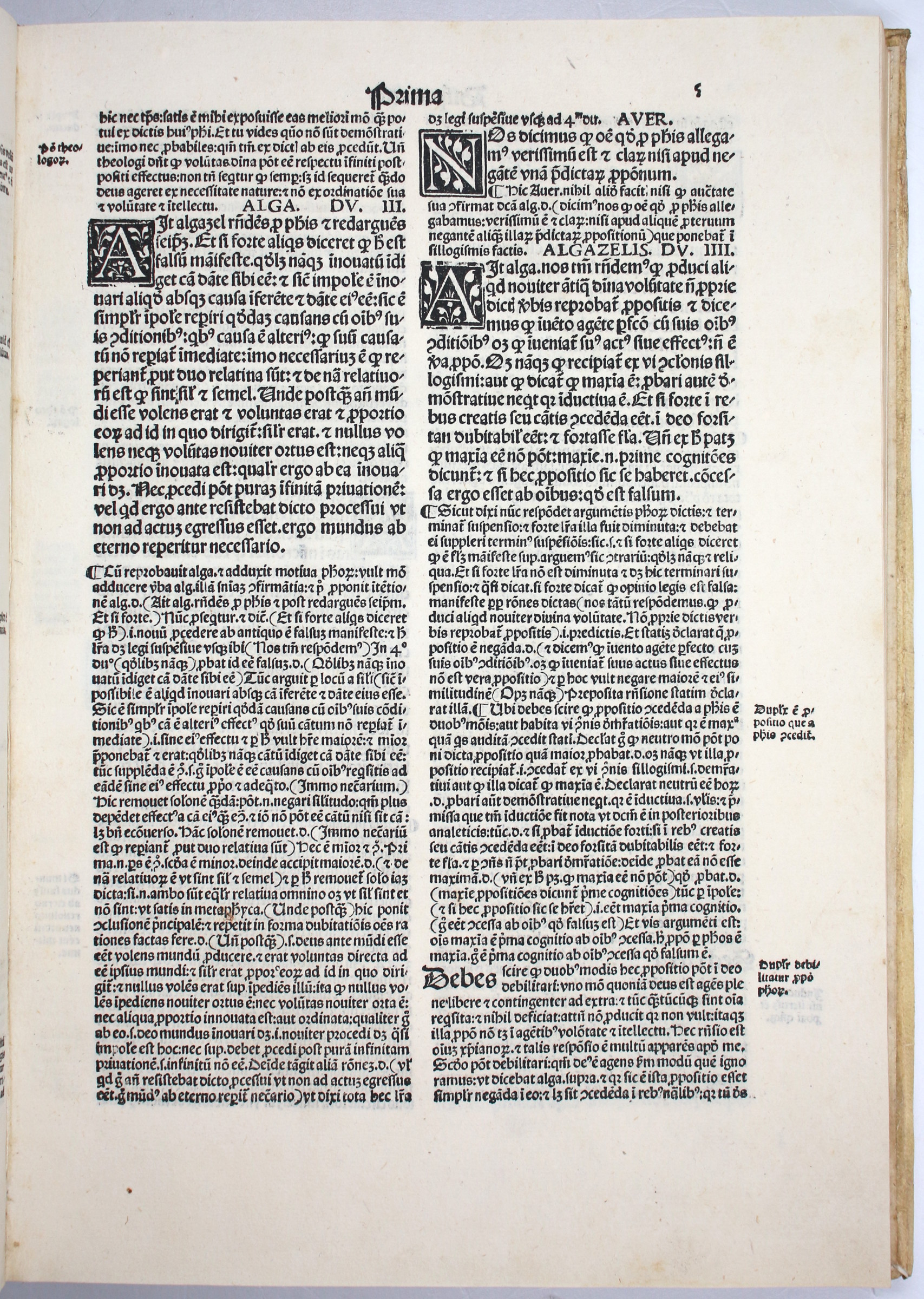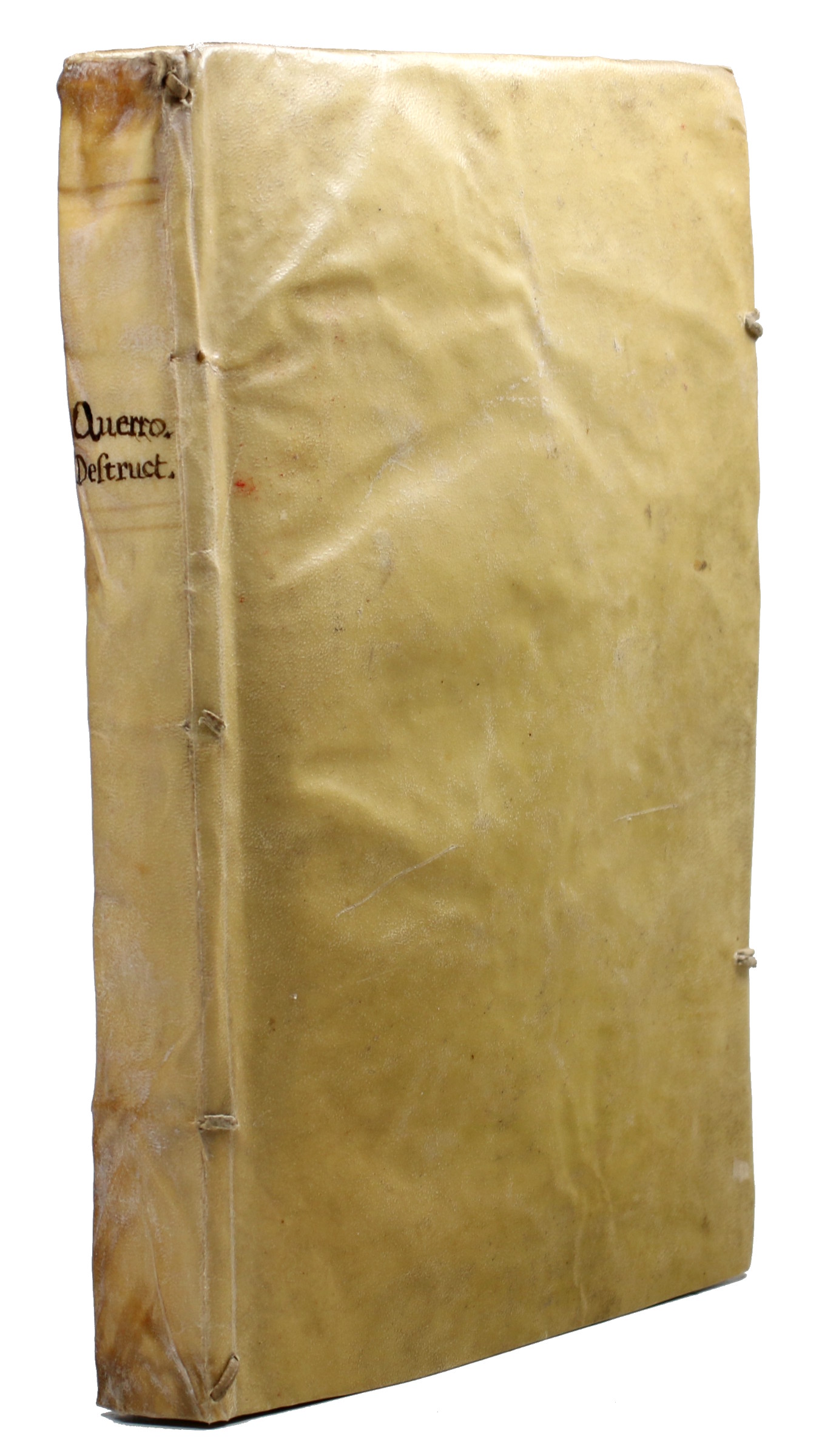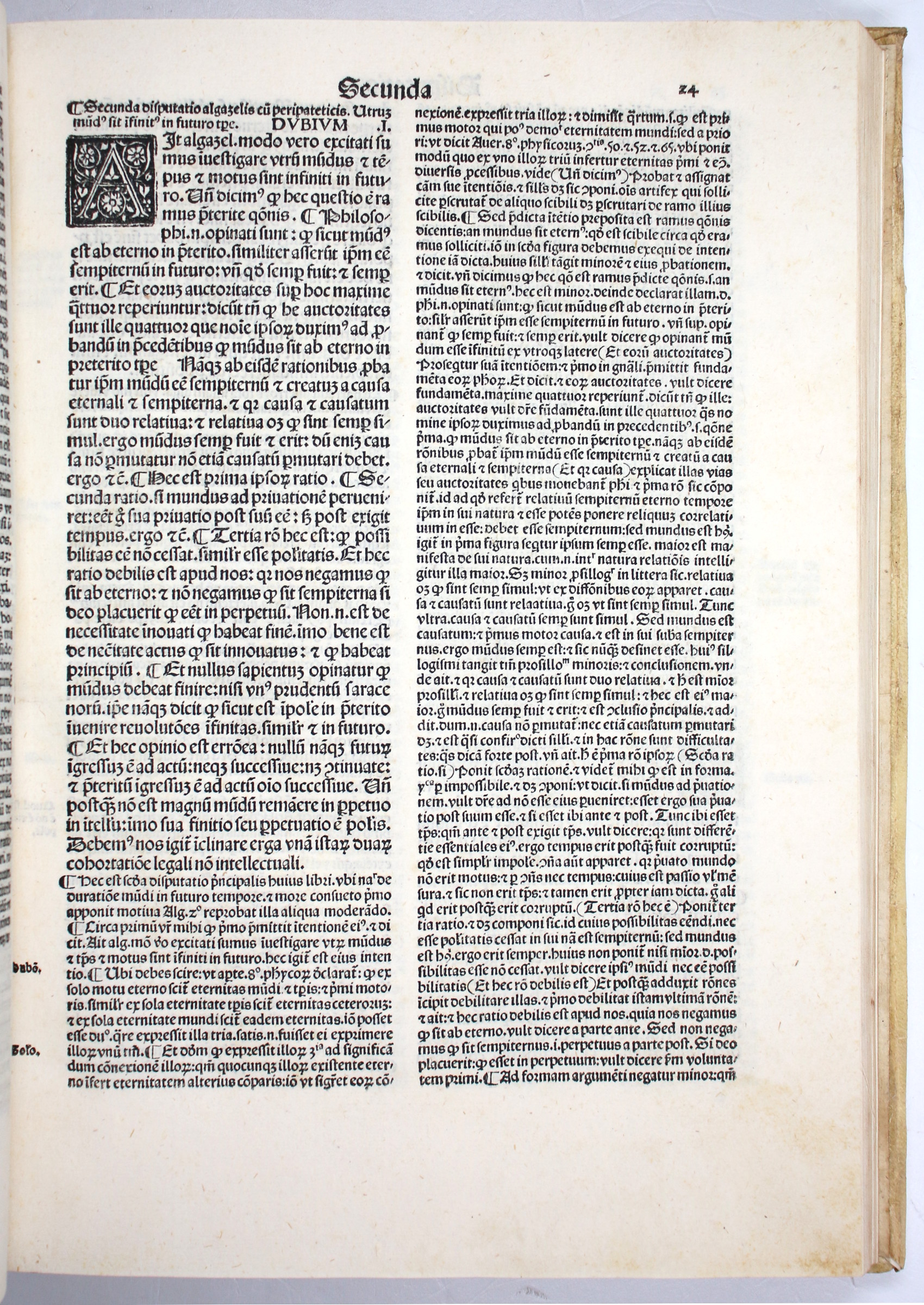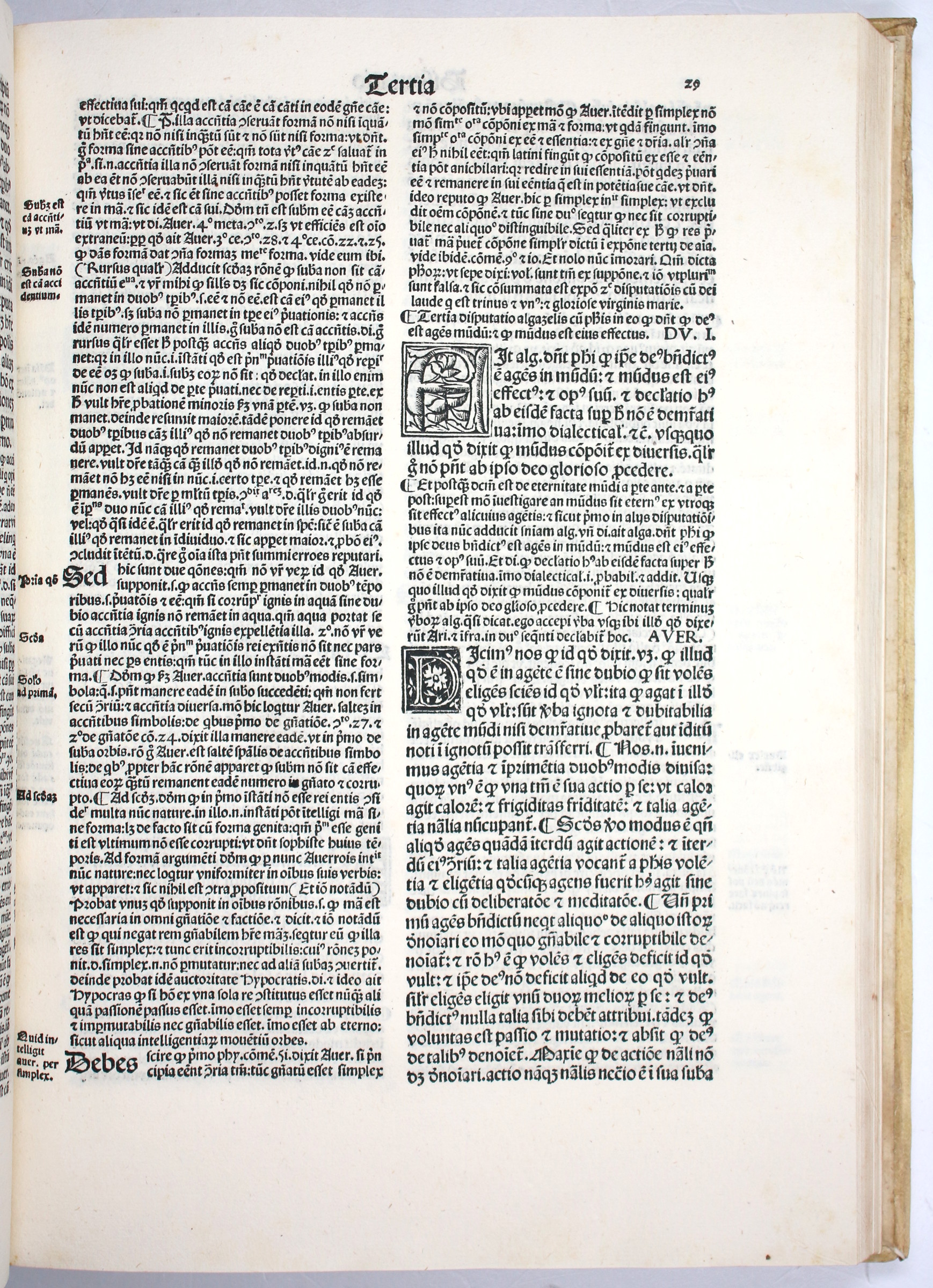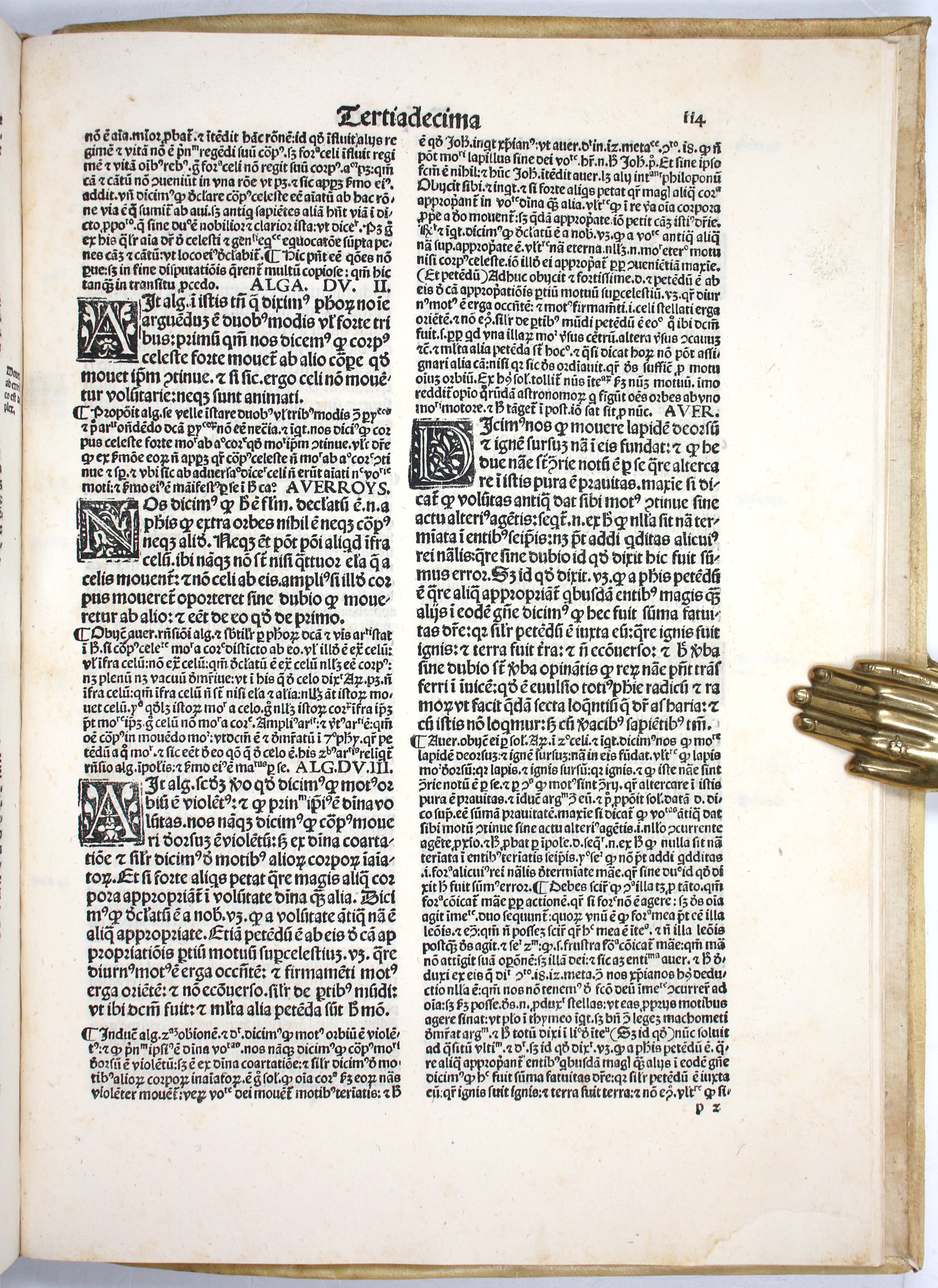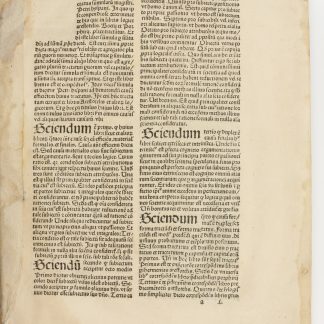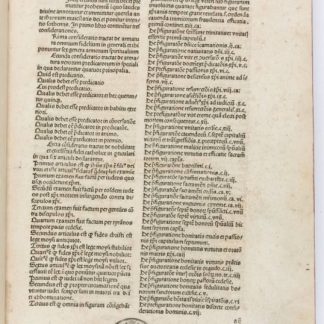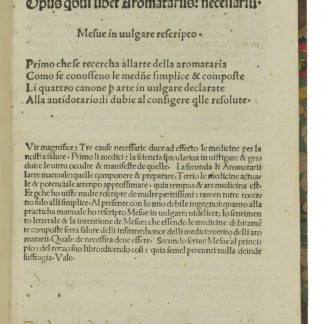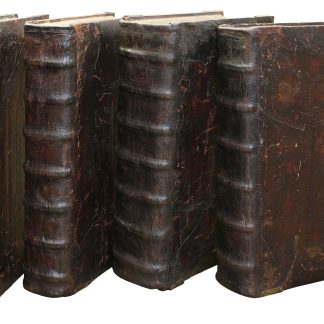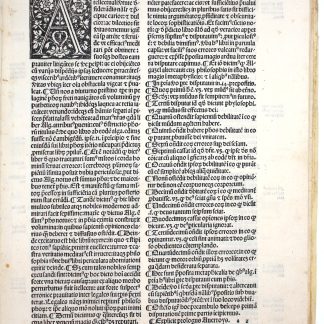The harmony of faith and logic
[Tahafut al-Tahafut - latine: Destructiones destructionum philosophi Algazelis]. Eutyci Augustini Niphy Philotei Suessani in librum destructio destructionum Averroys com[m]entationes ad Dominicum grimanum cardinalem maximum. (With:) Augustinus Niphus. De sensu agente.
Small folio. 130 ff. (signatures: a-p8, q10). Gothic type, 2 columns. With numerous woodcut initials. Near contemporary limp vellum.
€ 35.000,00
One of the great classics of Muslim as well as of Western philosophy, demonstrating that rational thought and theology are not at odds with each other. In this, his possibly most famous work, Ibn Rushd reacted to al-Ghazali's "Tahafut al-Falasifa" ("The Incoherence of the Philosophers"), which had dominated Muslim philosophical thinking for the past decades: al-Ghazali's late 11-century treatise had denounced Ibn Sina and al-Farabi for their Greek-inflected metaphysics, which he had found contrary to Islam. Himself an avowed Aristotelian, Ibn Rushd refuted Al-Ghazali's book section by section, showing that there was in fact no conflict between Greek logic and the Qur'an.
Ibn Rushd's apology of Aristotelian philosophy, cleverly named "The Incoherence of the Incoherence", was translated from Arabic into Latin in the early 14th century by the Jewish philosopher Kalonymus ben Kalonymus, and the translation was first published in 1497 by Locatellus in Venice, as one of Kalonymus' only efforts to see print. This is the undated second issue of that publication, and much rarer that the first: only ten copies are known in libraries worldwide, one of which (in St Andrews) is severely incomplete, containing only the appendix ("De sensu agente" by Agostino Nifo, the editor, who also provides a lengthy commentary). No copies in America. Auction catalogues list a single, incomplete copy, lacking four leaves.
A landmark work of cross-cultural philosophy, reconciling theology and rationalism; of principal importance for sixteenth-century Aristotelian thought.
UK private collection.
A fine copy in excellent condition.
Reichling 643. GW M26980. IGI IV, 146. IBE Post-incunables 187. CCIR N-16. Martín Abad, 112. Günther (L) 3423. Bod-inc A-631. Sheppard 4247. Proctor 5104. ISTC ia01412500. USTC 761883. Muhammad Ali Khalidi, Ibn Rushd, The Incoherence of the Incoherence (CUP 2015), pp. 155-180. C. Genequand (transl.), Ibn Rushd’s Metaphysics: A Translation with Introduction of Ibn Rushd’s Commentary on Aristotle’s Metaphysics (Leiden, 1986). Roland Hissette, A propos de l’édition ‘Princeps’ (1497) des ‘Destructiones destructionum’ d’Averroès. Contribution au ‘GW’ (notice 3106), in: Florilegium mediaevale. Ètudes offertes à Jacqueline Hamesse à l’occasion de son éméritat, eds. José Meirinhos & Olga Weijers (Louvain-la-Neuve, Féd. Int. des Instituts d’Études Médiévales, Textes et Études du Moyen Âge, n. 50, 2009), pp. 297-322.

